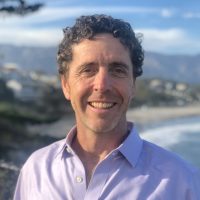View this post on Instagram
When asked “What thing about humanity surprises you the most?” the Dalai Lama answered:
“Man….because he sacrifices his health in order to make money. Then he sacrifices money to recuperate his health. And then he is so anxious about the future that he does not enjoy the present; the result being that he does not live in the present or the future; he lives as if he is never going to die, and then dies having never really lived.”
I hope I can buy my dream house; I hope that I get a bonus; I hope that I don’t get laid off; I hope I can find a good job; I hope that I can afford all my bills this month; I hope I can go on an amazing vacation this year; I hope I can buy that new model car; I hope that I’ll be able to retire; I hope I can leave my kids some money; I hope that I don’t get sick for my vacation; I hope I lose this weight; I hope that I don’t get cancer; I hope I survive cancer; I hope that I live a long life; I hope that I don’t have to experience pain.
We spend each day having to navigate the space between dread and hope.
What keeps us going is hope. What holds us back are our habits. Much of our dread and hope comes from our wealth and health. They are inextricably linked. Our survival, well-being, and joy depend on money and feeling good.
Our financial planning must include and consider how healthy we plan on being, as well as how much we earn, save, and how we invest those savings.
The conventional strategy should include reasonable investments for savings, creative use of tax deferred or tax savings accounts like IRAs, 529s, a conscious budget, and cultivation of a career or business. We should have good health insurance and a HSA (health savings account). We should get regular checkups from the doctor and dentist.
But this is not going to be good enough. We need to up our game!
Right now, the average stock market investor has made about three percent per year for the last 20 years (the stock market has returned eight percent). Average household credit card debt is $15k, included in an average total household debt of $135k. The average net worth of 55 to 64-year-olds is $45k.
The average health-insured family (not on Medicaid) spends about $20k out of pocket (not including rising deductibles, trips to CVS for Advil and toothpaste, concierge services, and all other costs intended to improve our health). Ninety-two million Americans have heart disease or the after-effects of stroke, 90 percent of which could have been avoided by living differently. There are similarly staggering numbers for cancer, diabetes, and many other chronic diseases and conditions.
They cost money to treat and manage. They take us away from money-making work. They make it harder for us to live well. And it doesn’t take an oracle to know that medical costs could be “the tapeworm of American economic competitiveness.”
Long-term care, if we get to the point of not being able to take care of ourselves, can run into hundreds of thousands per year.
We need a more advanced strategy, which requires us to change our habits. To develop rituals that are as second nature as brushing our teeth—from spending and working to sleeping and eating, how and when we consume, why and how we spend our time. We need to develop rituals that increase our wealth and improve our health.
Our deep misconception is that there is a silver bullet—like going on a diet or buying a hot stock.
The only path to sustainable health and wealth is the long game: replacing habits with behaviors that cultivate prosperity. Despite our fear of bad health and not having enough money, we have a hard time acting accordingly.
Here’s an advanced strategy for our health and wealth:
>> Spend less—hindsight is 20/20. Every time you spend, think about when you needed the money at some point for something good, and then consider the future you, who will need it again. Every dollar counts.
>> Invest in ourselves—our greatest asset is our ability to do what we do best. That is what generates the highest returns.
>> Make long-term (sustainable) investments that are understandable.
>> Sleep and eat well.
>> Move—all research shows that movement improves health and lifespan. Walk, run, yoga, dance, move! These bodies of ours are designed to move, not sit.
Five years ago, I found out I had colon cancer—stage two or three was the diagnosis.
At the time, life was good. I had a lot of money in my account and was travelling the world footloose and fancy free, or so I thought.
For two years my full-time job became getting past the big C. I am lucky—the cancer is gone. The process of getting better led me to tempering my consumption, which has stuck. The experience made me more appreciative of the non-material life. And the serendipitous result is what feels like a more meaningful and prosperous life.
It’s hard, sometimes, to resist the temptation of a feel-good purchase. It’s a balancing act to have a sustainable income in the life I now choose to live. But each day, I wake up feeling hopeful and go to bed content
Build your future while thriving in the present…your life depends on it!











Read 0 comments and reply